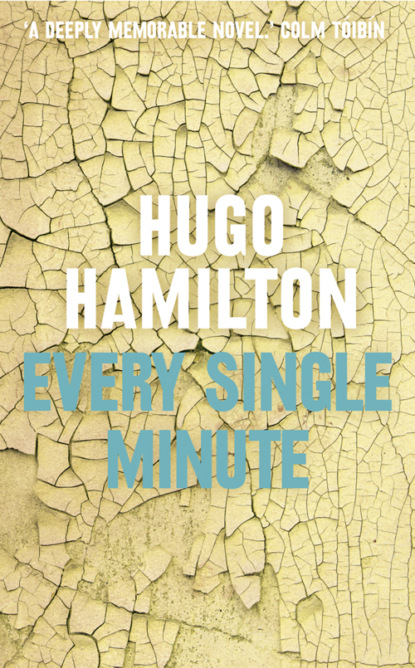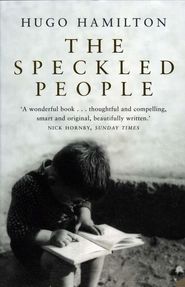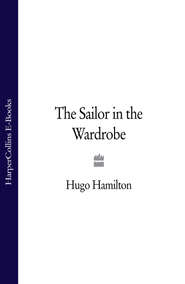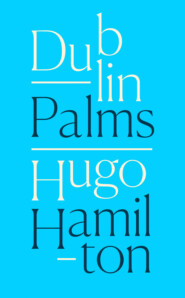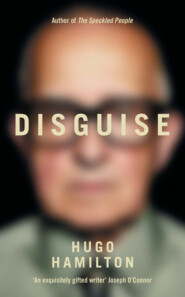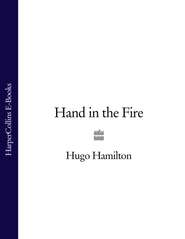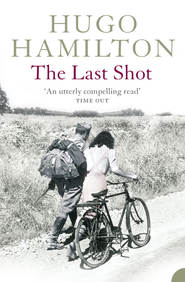По всем вопросам обращайтесь на: info@litportal.ru
(©) 2003-2025.
✖
Every Single Minute
Автор
Год написания книги
2018
Настройки чтения
Размер шрифта
Высота строк
Поля
There is absolutely no way that I’m going to spend thirty euros on a dinner in the Camden Hotel, sitting down with those savages, pretending it’s all in the past. Even if it is in the past. The reunion of savages. Everybody laughing like savages and talking about how far they’ve come up in the world and how we’re not savages any more.
Calm down, Liam.You’re in Berlin.
I am calm.
She wants to know what my brother is doing now and so I fill her in on my family. Peadar, my older brother, is married and living at home and he’s got a problem with water hammer. She has no idea what water hammer is, so I explain it to her. It’s something my brother has inherited along with the house, it has to do with the old pipes, the old plumbing. Water starts hammering like a hammer due to air locking, if you run water or flush the toilet in two different places in the middle of the night, for example. It can wake up the whole house. It used to drive my father mad. It’s virtually unheard of nowadays, a thing of the past which happens mostly in old houses.
I tell her that my brother has hardly done a thing to the house in the meantime, he’s kept everything the way it was, unchanged. He wants to preserve it all according to his memory. He still has the same problem with mice that my father used to have. My brother’s father is the same as my father, no difference, only that everybody has their own father to deal with. I still believe my father is after me. Even in the hotel sometimes, when I hear a door opening at night, I think he’s coming to get me even though he’s been dead for years and it can’t be him, I checked. It was somebody who got the wrong door. Swedish tourists, I think, who thought I was in their room by mistake. And every time this happens to me, I discover nothing new, only that my father has better things to be doing than following me around for the rest of my life. I’ve been imagining him, that’s all. It’s only now that I know what I’m dealing with.
Liam, stop it, she says.
Also. The yellow door. The door I’ve been afraid of since childhood is not the door of the place where my father brought me when my mother was in hospital and I thought she was never coming back, the yellow door that still gives me the taste of custard at the back of my throat every time I pass by, and it’s not the blue door of the school either, because the colour is irrelevant, so I’m told, it’s not any of those doors but the door of my own home when I was a child that I should be coming to terms with and walking into without fear, whatever colour it was, dark green. A kind of deep green gloss that people had on doors in the past but which is not in use very much any more now.
7 (#ulink_a14dd61e-89bf-5fcb-8c1d-d6f9218f30c9)
There was a moment of sadness in the car from time to time that kept us from saying anything. We stopped talking quite suddenly and were silent, back to our own thoughts, looking out the window, arriving outside the gates of the Botanic Garden. As if there were no words left in the world, only the sound of the electronic door sliding back and the sound of traffic and the sound of Manfred getting out the wheelchair. All I could think about was how short the time was and how she would be dead so soon after that. You do your best not to think like this, but you can’t help it. It’s at the forefront of your mind, even when you think you’ve forgotten it and it seems like nothing is going to change, we’re all going to live forever. There were occasions during the trip when she was close to crying and I wanted to cry with her, but I couldn’t let myself. I wish I could. And I’m not sure sadness is the right word for what I felt as Manfred was helping her out of the car, getting her into the wheelchair and she was saying, thanks Manfred, you’re a pet. It was bigger than sadness, I think. Something else, maybe the feeling that things were not quite as sad as they were meant to be, as though I was yet to discover what sadness was about and we had only briefly stepped outside normal time, waiting for real time to catch up again.
To be honest, Ihad no idea howto be sad. I couldn’t find the words to describe what I was thinking in that kind of situation. What do you say when somebody is dying? What are you meant to talk about? You talk about nothing to do with dying, isn’t that so? You say anything that comes into your head and pretend it’s the furthest thing from your thoughts.
She was not afraid of talking about death and what it does to you. She said it took all the goodness out of life, hearing that it was over. Everything went black, she said. What was the point of it all? What was the point in all that knowledge inside her head coming to nothing? All the people. All the stories she collected. All the books she read. And what about all the good times? Did they all come to nothing as well? Or did they remain good times?
She said it was like a door closing.
She said it was like losing all the lovers she ever had, like losing her friends, losing her brother, like all the doors closing at once, like everybody leaving without a word, only this time it was herself that was leaving, she said.
That’s what you do, Liam, you start saying goodbye. You go back over your life and you say goodbye to everyone, each one individually. You say goodbye to all the people you remember. All the things you had once in your possession, the jar of hand cream, your lipstick, your own thumbprint left in a tube of toothpaste. All the things you had that were never yours for keeps, only borrowed. The yellow curtains, Liam. The books. The shoes. The trace of yourself left behind. All the places you ever set foot in. All the houses you ever lived in, all those quiet rooms, all the fires at night, all the warm beds and the towels on the radiator.
And maybe there in Berlin with her was the first time I became aware of anyone close to me dying. I didn’t say this to her, but when my own father died, I was too much in shock, I had spent so much time trying to get away from him that I was not mentally prepared for it when he disappeared. It felt as if he was only gone out to the garden to light a bonfire and he would be back any minute with the smell of smoke on his clothes asking me what I’d been up to. I felt suddenly very old when my father died. As if my life was gone past. His death was my death, so I thought, even though I obviously had to go on living, I had no option. I was still alive after him, but he might as well have taken me with him, I refused to believe it was him in the coffin. At his funeral I felt he was still fully present. My mother and all our relatives and everyone else in the church were in a different world and my father’s brother, the Jesuit, was up on the altar saying his own brother was gone, the Lord had taken him to rest. I didn’t believe any of those words. I wanted to run away from the church and all the people because they were suffocating me.
I think you need lessons in sadness. I had no idea what grief was at the time. I could see it in other people, but I didn’t realise that I carried it with me all along. It was accumulating without me knowing it, like some dormant virus that can eventually erupt when you’re least expecting it. When I saw my mother crying I could see everything, her whole life, her childhood, her memories, how much she must have been in love and how much she must have been loved, no matter how hard my father was on the family. Whenever people were sad, they showed all their happiness as well. I didn’t think sadness should be revealed in a person, it was a weakness. I was only doing what everybody else was doing at the time, I thought, trying to avoid sadness. I was under the impression that everyone in Ireland was doing their best to pretend there was no such thing as sadness, singing, drinking, talking, telling stories, anything at all to keep themselves from looking sad, only when they were singing sad songs. I kept laughing at myself, laughing at the world, laughing at death, laughing at pain, laughing at things I liked, laughing at love and all those things that could hurt you if they were taken away, laughing at everything that makes you fall victim to sadness. I wanted to let everyone know that I was not afraid of my father dying, I was not bothered by any of that, so I told myself.
When my mother died I was still afraid to be sad. She was alone after my father died because her best friend, my father’s brother, refused to visit her. All I knew how to do was to be her son. But he was her real companion, my father’s brother, the Jesuit in the family. And then he stopped coming to see her. I didn’t know the reason for this at the time. I knew there was a reason, but it’s not something I worked out until much later. She would sit looking out at the back garden and wait for my father’s brother, saying why does he not come and visit me? He was there at her funeral, the Jesuit. My father’s brother. He came to say Mass for her. Although I was hardly present myself. I was there with the family, but I was more or less absent from then on, avoiding everything, shaking hands with my father’s brother outside the church and not saying anything, wishing I was invisible, as if you cannot see your own life clearly when you’re actually in it.
This time I was present.
Travelling around Berlin in the car for two days, pushing the wheelchair in through the gates of the Botanic Garden, for example, allowed me time to say goodbye to my own mother and father, in retrospect, from a distance. This time I was fully aware of what it means to lose somebody. And you know what, this may sound like the wrong thing to say, but there was something about Úna dying that triggered off something alive in me. It made me feel as though I was actually taking part in my own life for the first time. In fact, I think I was a bit elated being there near the end, with her. Even joyful. Exhilarated, you could say. Am I getting this right? It made me feel more myself. Or more like an exemption from myself, somebody released on parole or something like that, as if I never had to pay the fare again, as if all my debts were paid, that sort of feeling I had. I think. It felt as if none of the ordinary things mattered any more. That’s what I thought. Or maybe it was the other way around, it was only the ordinary things that mattered, like buying the entrance tickets to the Botanic Garden and letting Manfred know that he had plenty of time to go for coffee, I would call him in a while when we were ready to leave again.
8 (#ulink_ec07b4e6-c6c5-51a8-8ddf-fcd58225e371)
She told me about her love life. She said she first had sex with a man when she was fifteen. He was twice her age. She said she loved all the attention her body got in her school uniform. How was she supposed to know that he was a married man? She said she was lucky that her father found out and called her a slut and took her out of school and sold his car and borrowed another car to take her to a boarding school in the north of the country where she would be out of danger and it was too cold and damp to think about men. She said you could see your breath when you went to sleep. And there was nothing to think about only the Virgin Mary and other girls.
This is not word for word. This is more like a reconstruction, the back pages, she called it, made up of some of the things she said about love and sex and happiness, not all of it in Berlin. She loved sex. Especially on Dublin afternoons, she said, with the sound of buses going by and squeaking brakes. She loved the sound of people’s feet walking past the basement window while the word fuck was flying out of her mouth.
Fuck was not a word she used that often.
She said love and sex were a bit like writing a novel, it had everything to do with fabrication. That’s what I think she said. She said the best lover was the best storyteller, something like that. The problem with a lot of books, she said, was the writer trying to tell you what to feel. Writers getting the better of their readers, forcing themselves on their characters. Like one man she was with who told her that she was mistaken and that what happened between them was consensual, only that she was too young at the time to know the difference. She didn’t like being told what to feel.
She had a boyfriend in London once who said she could not make love but she had to sit up in bed with a book afterwards. He hated me reading, she said, the way other people sat up in bed and smoked a cigarette. Which she did also, but with a book. He thought it was the biggest insult to a man. The book. He said she made sex look like doing the dishes and she couldn’t wait to get back to her book, so he took out all the light bulbs. Every one of them, she said, just to make sure she stayed in the room and didn’t escape with the book. But even in the dark I withdrew into my imagination, she said, like my mother did with my father. Even with no light in the room and no book to read I still crept away into a childhood corner of myself alone, rocking myself to sleep.
She said it was a great adventure, her love life. Sometimes she came across moments that were unforgettable, like seeing something from a moving train that you wanted to bring with you only it was already gone by and all you could do was try and write it down. She said it was delicious. Sex was delicious. I know it’s an old word now, but it’s an honest word, she told me, and I have no reason to doubt her. The meaning of delicious may not have changed all that much and sex may not have changed all that much either, it was all discovered in her time.
Delicious, she said.
She lived with a man for a long while who was a great reader and they went to lots of places together in Europe. He used to read aloud to her after breakfast, books that she had never heard of before. Things in books that she would never have noticed without talking about them and pointing them out to each other, like they were still learning to read. She said it was the only secure relationship she ever had and they could have got married but that would have put an end to all the travelling, wouldn’t it? She said she didn’t know what made her so afraid of getting married, only the fear of becoming her own mother. The wedding was called off and people were left holding their wedding gifts.
Because she always had the need to be alone again. She had to be herself. It was her greatest fear, not being herself, being restrained by the people she loved. Afraid of being in love because you might not be free. She could remember standing in the street listening to him telling her not to walk away, please, and all she could think of was keeping one foot on the pavement and the other foot off the pavement, everything swirling in her head, waiting for him to stop talking so she could walk away. Swirling was another word she used a lot and maybe that doesn’t change much, it’s still in the same place as before, like the word please, and the word finished and the word over. She used to sit alone in her room drinking wine like her mother. She would let the phone ring and not answer it, as if there was nobody in her life only the characters in the books she was reading. She thought there was something noble about being alone. She thought your family was where you trained how to be alone. She thought every person you loved would leave and you had to leave every person you loved. She had to be herself and being alone was the purest form of being yourself.
She said New York was a great place to be alone. She got to know a lot of people there and a lot of people knew her. In fact, people more often knew her when she didn’t know them, people nodding to her as if she should remember them from somewhere. And then she would realise how much she needed people more than ever. Being alone was like denying the weather, something you could not avoid being in and out of, like having a mother and father, like having brothers and sisters, like religion, like being brought up in a Catholic school and needing to get away, being a writer.
She said she spent her life searching for men who were like her father. And one time late in her life she met an Irish truck driver who was like a real father. The trucker knew how to make up a story. The trucker with the false teeth, she said.
Love with false teeth.
Love without teeth, she said, so he could suck on my breasts.
I told her it was wrong to put all that into her book about the trucker. I wouldn’t like those kind of details made public, if I had false teeth.
Jesus, I hope his wife didn’t read it, she said.
His wife probably recognized the false teeth, I said.
Don’t laugh about it, she said. That trucker was full of love and travelling. One night he came to me and he was unable to have sex, she said, he wasn’t up to it. Too much on the road. So we just left it and went to sleep. And during the night I woke up to find him stroking my back. We didn’t speak. He was sitting up in bed, gently stroking my back and I imagined him travelling across Europe, she said, off to England, across to France and Germany and down through Austria, all that mileage and all those road signs in different languages, all the faces of people he must have seen and spoken to, picking up his consignment of Italian tiles and bringing them all the way back along the big European roads, back on the ferry to Dublin. He travelled in his sleep, in silence, stroking my back, she said. Then he had to go home to his wife. He left me asleep and awake. He made himself a cup of tea. He didn’t give himself time to drink it. He left the cup on the table. He walked out the door and continued on travelling.
I couldn’t keep him, she said. I kept his letters. Beautiful letters, I kept them all. I brought them with me wherever I went travelling, a bundle of them in my suitcase all over the world. I kept them and read them from time to time, but I couldn’t keep him. I couldn’t keep anyone. The only way I had of keeping anything in my life was in my book.
9 (#ulink_47c250df-0d44-5500-b71b-078cb4a8d11d)
I told her a bit about my love life. I didn’t tell her when I first had sex, she didn’t ask me. We talked about who I fell in love with when I was around nineteen. Her name is Emily and she is the mother of my daughter, Maeve. We talked about love and travelling and she wanted to know all about my back pages. How I took Emily down to Milltown Malbay in County Clare, when we were escaping from her boyfriend. Emily was living in a basement apartment with him and she invited me down for breakfast, a boiled egg. Her boyfriend was out, and before he came back, Emily asked me to take her away somewhere. Anywhere away. So that’s what I did, I took her away to Milltown Malbay.
It’s a funny thing, you go somewhere abroad and right away you start talking about home, making connections. It’s mad, isn’t it. You go to Berlin and you end up talking about Clare and Milltown Malbay. She’s sitting in her wheelchair and we talk about how much we both love the west of Ireland, Clare in particular. She has a house there, a small two-roomed cottage where she used to go to work on her books and walk across the Burren with Buddy. When she came back after living in London, she went down to Clare for the first time and she said it was like finding a place on the far side of the world that she had never heard of before, undiscovered.
We talk about the music festival in Milltown Malbay every summer. She remembers the musicians and the listeners on the street because there was never enough room and the pubs were turned inside-out.
I remember a piper sitting on a chair, she told me, brought out on the pavement. Men with their shirt sleeves rolled up to work the fiddle and women with accordions strapped across their chests and the knees going up and down like engines in the machine room of a ship. People bringing out drink and ham sandwiches to keep them going. She said there was always a man or a woman in the audience who got so excited by the speed of the music they would yelp and shout fair play to you, right in the middle of the tune, just to make sure they could be heard listening. And the pub where everybody was suddenly trying to get back in, like it was the only place in the world to be at that moment and there was no way a pub that small could accommodate the amount of people already inside. Where the crowd squeezing in at the door was like the people in London, she said, trying to get on the Underground. Only they were straining to hear a singer who had started up a song unaccompanied, with his eyes closed, holding on to the bar counter to steady himself.
I asked her about that pub, what was the name of it? But she could not remember the name. Was it a pub where women had to go through the kitchen to get to the bathroom at the back of the house, I wanted to know. And there was a big bath in there with all these cracks. A huge bath with a million tiny hairline cracks in the enamel. She said she remembered a lot of bathrooms in the living quarters at the back of pubs and they all had cracked sinks and cracked tiles and mirrors that were gone freckled with black spots and plaster flaking off the ceiling and the geyser above the bath where the water came out boiling.
You must have seen the bath, I said to her. The bath with a million hairline cracks in the enamel.
Not that I remember, she said.
It was in that same pub, I said. I’m certain of it.
I was asking her all that because I was there myself at that festival, the year I escaped with Emily, possibly at the same time, listening to a man of that description standing at the bar, steadying himself on the counter. He was belting out this song with his eyes closed. And then who walks into the crowded bar, only Emily’s boyfriend. I don’t know how he could have known we were there, but Emily said she saw him squeezing his way through the crowd. I didn’t actually see him myself, only that Emily looked up suddenly and said, shit. Then she took my hand and dragged me through the crowded bar, out the back, through the kitchen with the smell of rashers and eggs and tealeaves. As we passed through I saw a range and an armchair in the corner with a holy picture on the wall above. Through the house Emily pulled me, into the bathroom where they had the cracked bath. She locked the door and that’s where we stayed and waited. We could hear the man singing in the bar still, it must have been a hundred verses. You could hear a pin drop, as they say, as if there was nobody out there but the singer by himself alone, just the occasional cough or the sound of empty glasses, you know the way a barman puts a finger in each glass and sweeps them up with a clink, three or four glasses in one go, as many fingers as he has available. Emily was sitting on the side of the bath with the million hairline cracks, wearing a green dress and black boots and a light-brown cardigan with the top buttons open. Her hair was long and she had lots of freckles. She was playing with the chain, swinging the grey stopper around while I was standing with my back to the door. We didn’t say a word. I was not smiling or laughing or anything like that, and nor was Emily, only that she lifted her shoulders as if to say, what else can you do?
I don’t remember how we got out of there in the end. All I remember is Emily sitting on the edge of the bath with all the hairline cracks and whispering to me that maybe there was time to have a quick bath together while we were waiting, only that there was no soap except ivy soap and that was for washing the floor, not for washing your body. What a pity we didn’t bring a candle. And what a pity we didn’t bring our drinks with us at least, Emily added.
There was a picture of Pope John the Twenty-third and John F. Kennedy in the bathroom with us. Maybe the only one left in Ireland. The picture was quite faded with the steam from so many baths. John F. Kennedy had his head tilted to one side and there was a water cloud covering half his face. Pope John held his hand up in a blessing and his white robe was gone brown, buckled up with age. I know that because Emily asked me to look at the picture carefully while she was having a piss.





